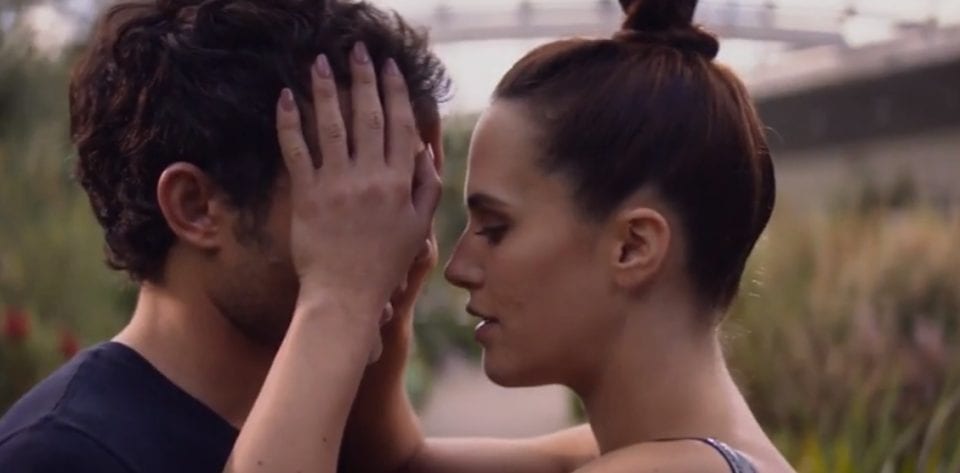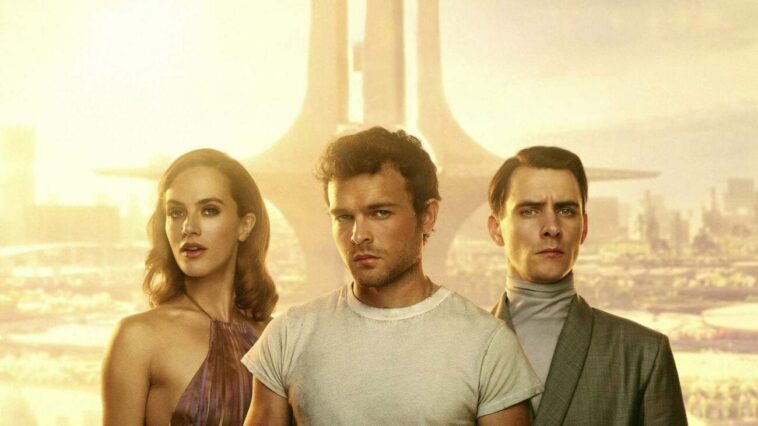The TV show adaptation of Brave New World is an oxymoron in and of itself. It’s based on the groundbreaking book of the same name written by Aldous Huxley all the way back in 1931. It’s mind-boggling to think that it was written nearly 90 years ago, as Huxley created a future world with so many innovative and controversial ideas, that it’s philosophy is still risqué by today’s standards. This is the main reason why the TV adaptation is a paradox, as it’s a modern re-imagining of a 90-year-old future that although is closer today, is still light years away in reality. The story tackles themes of sexuality, monogamy, reproduction, narcotics, religion and free will, to name but a few.
What Huxley did was tear down people’s perspectives of these subjects and proposed what a world would be like if we were completely free of any of the prerequisite notions they inflict on us. The root of the major difference in this future society is the complete absence of religion. Without it, this means that monogamy and the family unit are a thing of the past, laughably primitive and outdated ways of living that have no element of logic. Without the influence of religion, “everyone belongs to everyone,” they’re subservient to their base instincts and it’s considered abnormal to refuse sexual advances from anyone. You’re taught to fornicate with as many different people as possible, as regularly as you’re able under state-controlled guidelines.
It could be argued that we have taken massive strides towards this ethos in recent years. Marriage is starting to become an old-fashioned concept and therefore viewpoints on sex are also becoming more liberal and less private. However, we’re still very far off from a society free of monogamy or jealous possession. One of the most interesting things that’s added into the mix of the show is bisexuality. This wasn’t mentioned in the book for obvious reasons but in the show people also don’t differentiate between male and female sexual partners. You’re inclined to pleasure a friend of the same sex just to cheer them up or when you think they need a release.
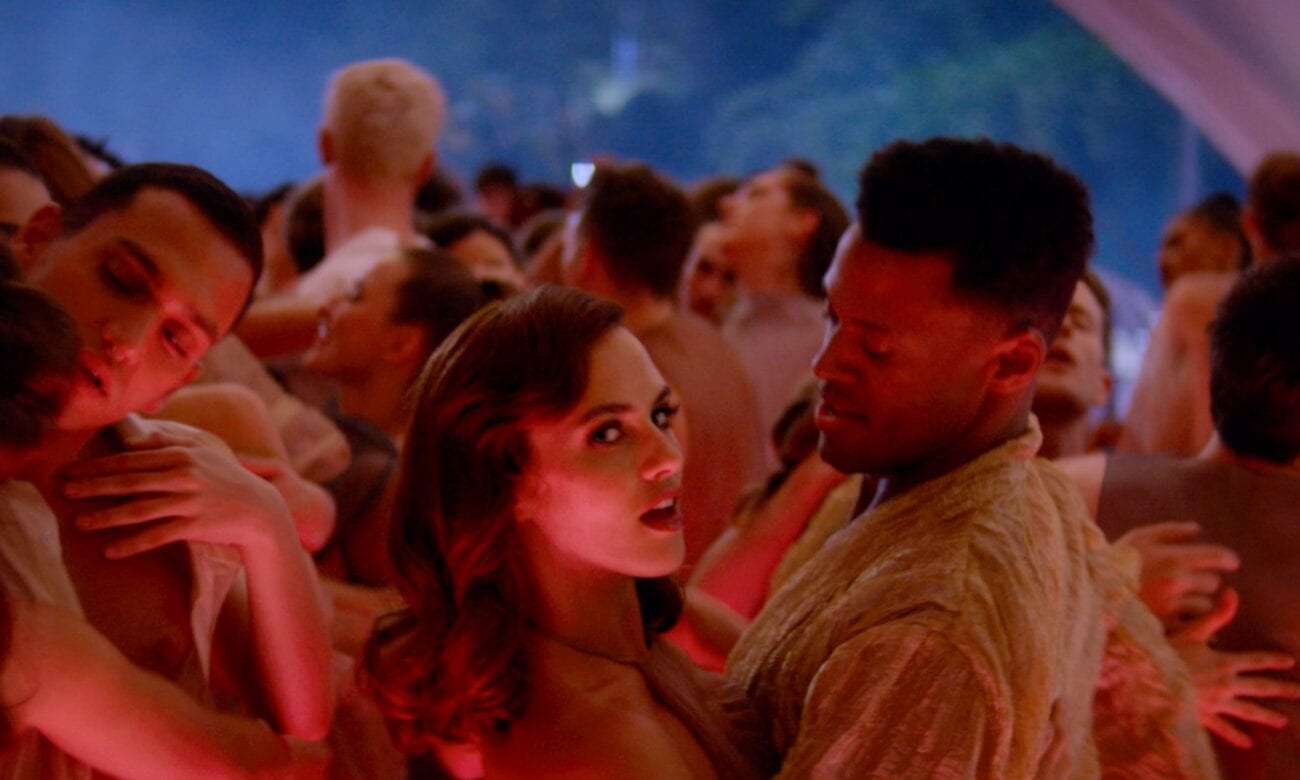
This isn’t a completely new concept, it has been explored before and even has its own term: “friends with benefits.” Although, it hasn’t been explored in this manner before or with as much freedom, and it’s an intriguing proposition. More often than not in the media and in reality, it always seems inevitable that one of the friends becomes attached and either jealous of others or wants more from the relationship, usually to be exclusive. In New London, if you’re seen to get too attached to one sexual partner and neglect everyone else, it’s considered a major problem. It’s also an issue that you cannot hide, as privacy is also something that’s non-existent in this society, but more on that later.
Now you may think that there’s some twisted logic to this way of living as our physical chemistry does encourage males to seek as many sexual partners as possible once they’ve gone through puberty and females to be ready to bear children regularly from a young age as well. However, in Brave New World, natural births are also a thing of the past. People are created and birthed through advanced eugenics in labs, plus there are different, strict classes of people bred for different purposes. From the lowly Epsilons who cannot think for themselves or barely function, created to perform mundane tasks that no intelligent person would want to do, all the way up to the Alpha Pluses, who run the city.
So what is the purpose of all this sexual freedom if not for procreation? What do all the orgies and rampant copulation achieve? Well it acts as a clever, complex form of control. The people in charge believe that serious relationships will only inevitably lead to conflict and despair. This is also reflected in the fact that they keep the populous sedated and carefree on narcotics. Now it’s never explained exactly what “Soma” does to a person, just that there are different strengths of it, but it seems to numb one as well as instantly balance your mood, despite any situation. It’s signified in a shrewd way, as the pills are administered by a clicking device into the hand, so the amount of clicks reflect the severity of a situation.
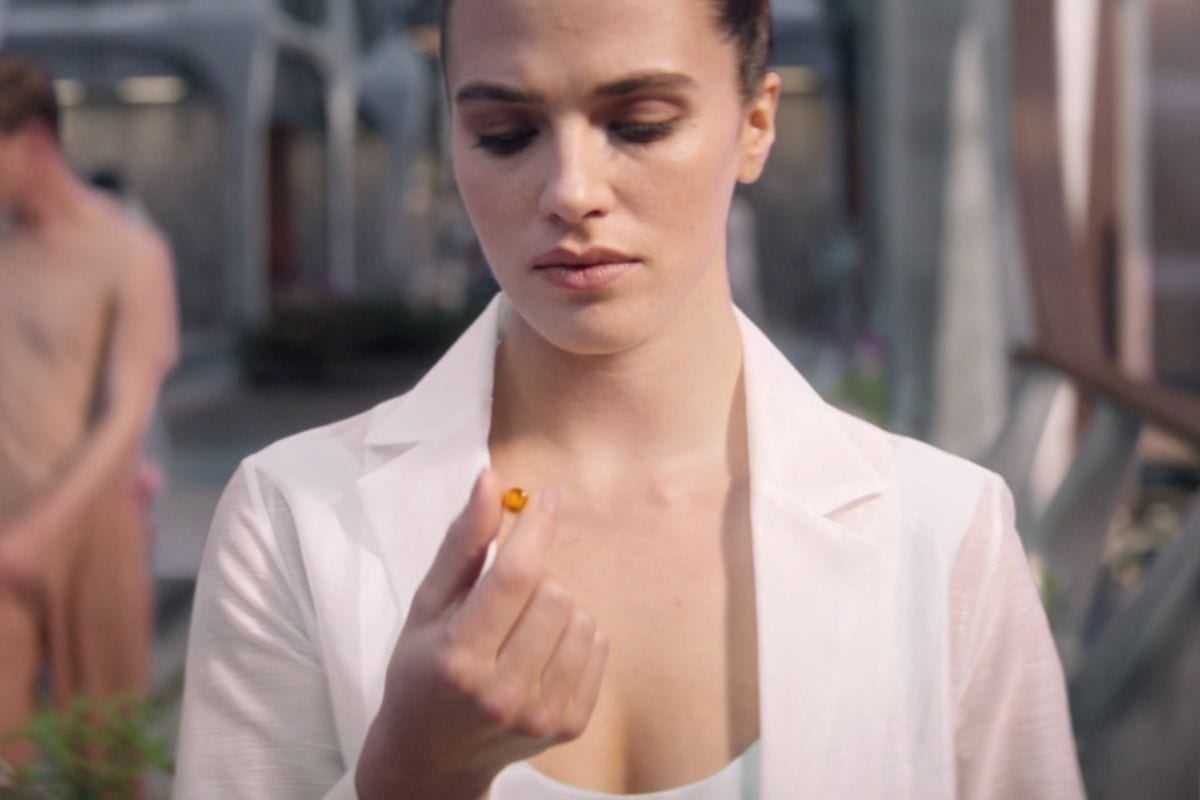
As mentioned earlier, social media has also been taken to its logical conclusion in the most extreme way in the show. Facilitated by technologically-advanced eye implants, everyone is able to see through the eyes of anyone else at will through an advanced social network and so the populous have a bizarre, shared perspective on everything. This is probably the most effective element added that wasn’t from the book but simultaneously fits well with its ethos and relates to the present day, as it’s also the part of this society that we’re getting scarily close to. I heard a Snapchat ad whilst listening to a podcast recently bragging about how the “Snapchat generation are the most connected yet,” as if this was a good thing, with sound bites of people saying good morning to each other. Personally, I found it disturbing.
It is becoming more commonplace though, people sharing every insignificant detail from what they’re eating to what boring errands they’re doing throughout the day. That’s not far off from being able to see through the eyes of others all the time, for those that subscribe to it. Technology is already having an affect on the sex industry and how people interact with it. Whether it’s through webcams or Zoom, or people paying for nude photos from teenage girls, it’s easy to see we’re heading towards a culture of people being able to see what happens behind closed doors, something that’s commonplace in this future society.
All of the dense and complex themes are just half of what makes Brave New World so entertaining. Stylistically it also has elements to match its themes. This isn’t a surprise as one of the show’s creators is legendary comic book writer Grant Morrison, along with Brian Taylor, who adapted the former’s book Happy! together to great effect together previously. You can sense Morrison’s hand and the show has a slight comic book element that it benefits from greatly.
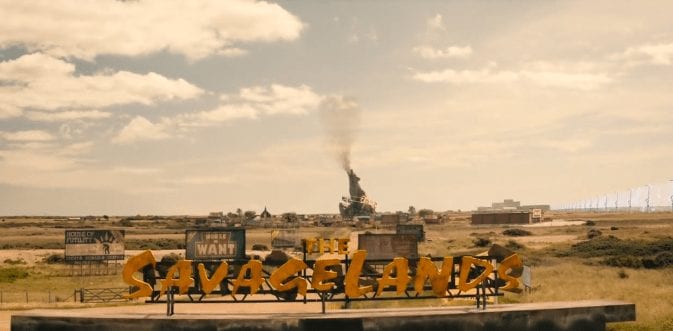
This is demonstrated by the look of the futuristic city, with its neo-brutalist architecture it looks like what Apple would have created if they had free rein and built Dubai. User-friendly technology is around every corner, allowing you to customise your 3D-printed outfit and surroundings as easily as you change the lock screen on your phone. It’s a very neat, clean world that verges on being clinical but doesn’t quite cross that line. Also, The Savage Lands in America, which was more of a Native American reservation in the book and where John is brought from to New London, has been modernised into a Jurassic Park-esque tourist attraction. It hosts shows and demonstrations for visitors from the city that portray the archaic rituals and practices such as weddings and family life.
There’s a great element of quirky humour throughout Brave New World that never lets the audience forget that it knows how ludicrous it must seem to them, and it’s most apparent in The Savage Lands. A particular favourite moment is their reenactment of the greedy insanity of shoppers on Black Friday. One of the other major differences from the book is the character of John the Savage, played brilliantly by Alden Ehrenreich in a very slick, cool performance. The scraps of culture that he clings to in the book are the works of Shakespeare, in the show these are replaced with an old Walkman.
Now this may seem like an inadequate replacement, as the works of Shakespeare can rival the Bible in terms of what they can teach you about life. The John from the book quotes from them regularly in response to his new surroundings when he enters the city and the title itself is directly taken from a quote in The Tempest:
“O wonder! How many goodly creatures are there here! How beauteous mankind is! O brave new world, That has such people in’t.”
However, the songs that the John from the show has managed to find on old cassette tapes are an amazing collection that include artists such as Lou Reed, Neil Young, Radiohead, Sharon Van Etten and Cat Power.
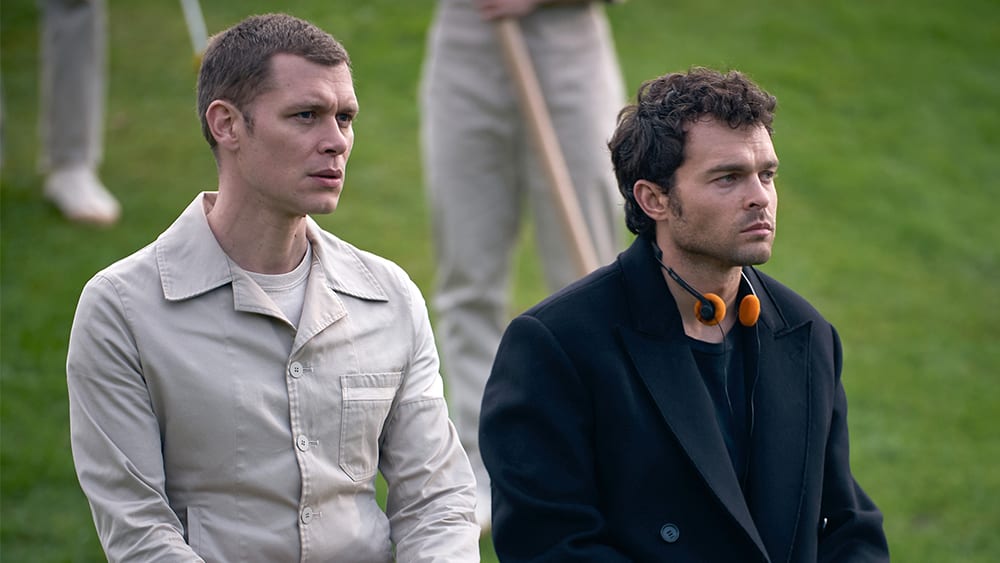
In terms of what they’re able to tell you about past culture, songs such as these could arguably be more comforting than Shakespeare and they definitely work better in the show with this version of John. They accompany some of the best moments, like when he’s sitting on a hillside watching a distant lightning storm to “Fake Plastic Trees” or walking through the grounds of the city to “Perfect Day” as the Epsilons garden all around him. The whole soundtrack is fantastic and includes other great uses of non-diegetic music with cleverly appropriate lyrics such as Goldfrapps’s “Happiness” and Car Seat Headrest’s “Drugs With Friends.” Likewise, Map’s “Love Will Come” and Justice’s “Genesis” accompany a massive orgy and a fight perfectly.
Also, numerous party scenes are soundtracked by Jon Hopkins, Gold Panda and Sebastian. It’s one of the best soundtracks for a TV show I’ve come across. My favourite moment of all is when Lenina (played by the alluring and stunning Jessica Brown-Findlay) and her superior Bernard (played to awkward perfection by Harry Lloyd) share a moment of disillusionment in a large room, made to look like the moon’s surface with a view of the Earth. It’s a sweet, tender moment soundtracked by Brian Eno’s “An Ending (Ascent).” This is a particularly poignant choice, as it’s the best track from his album Apollo, which was made to accompany footage of the moon landing. The scene acts as a metaphor for society, it’s been difficult to reach where they are and it should be astounding, but as serene as it is, it still feels fake.
Even though it has many stylish elements, it’s the original themes from the book that make Brave New World appealing. When John the Savage is introduced into this very “perfect” yet delicate ecosystem, he becomes the hot topic as well as the embodiment of a virus and the city his host organism. It’s up to you as the viewer to decide whether his impact on the social body is positive, negative or a combination of the two. The modernised version of John works well, as the character was devoutly religious in the book and didn’t succumb to any temptation until the very end of the story, to disastrous effect. The John of the show is more realistic by today’s standards, navigating through the luxuries of society without losing himself completely.
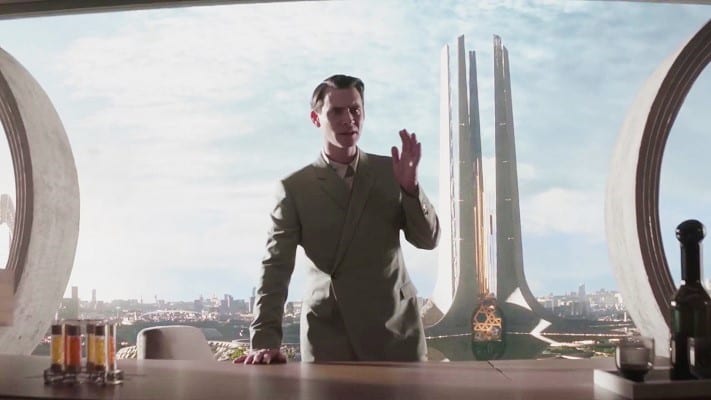
The love triangle between the three leads is also well-written, exposing the best and worst in the characters. The show isn’t perfect by any stretch—there’s an additional AI subplot that feels unnecessary and out of place—but it’s as good as an adaptation of such a momentous book could be. I am slightly biased though as I’m a fan of the source material and particularly enjoy stories of this type, ones that imagine how dystopian futures could be. The show has received quite a lot of criticism for not being daring enough and plunging deeper into Huxley’s original ideas. These critics have a point but it’s the problems that are nearly unavoidable when adapting a book of such complexity into nine episodes—just be glad they didn’t try to make it into a film.
It’s definitely more style over substance but this is not only something I feel is often wrongly perceived as a negative but also suits this story. Brave New World, in a very similar way to the live-action adaptation of Ghost in the Shell, falls into the same trap of arriving too late. The source material for both was revolutionary at the time but has had so many imitators since, that it looks as if they’re imitating their own imitators.
Huxley’s novel has a vision of the future so sophisticated, it’s only ever been matched by George Orwell’s 1984. It’s not a surprise that both have been so influential on how modern movies perceive how the future could be. Brave New World is to Equilibrium (a personal favourite) what 1984 is to V for Vendetta. It’s entertaining, fun and thought-provoking in all the right ways, making it one of my favourite shows of the year so far, despite its flaws.
